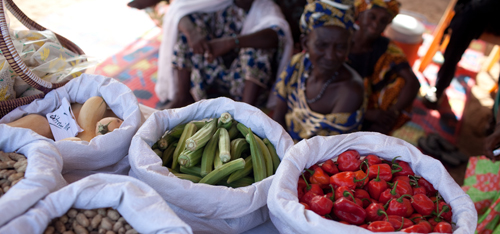Community empowerment through Listeners' Clubs
People living in rural communities are often cut off from vital information and communication, but community listeners' clubs (CLC) − established by FAO Dimitra in 2006, firstly in the Democratic Republic of Congo and later in other African countries − seek to turn that around by providing a space for information and knowledge sharing, discussion and collective decision-making. The concept is to encourage everyone − especially women and youth − to become more involved in the economic, social and political decisions that affect their lives, livelihoods and communities.
The CLC meet regularly and choose a theme or topic of interest which can range from updated agricultural practices, land issues, water access or nutrition, to HIV prevention. Subsequently, a journalist or facilitator prepares an interactive radio programme based on the chosen topic, which is aired in local languages via community or rural radio − a good way to reach remote communities in Africa.
Following the broadcast, members discuss the issues, sometimes inviting an expert from outside. These discussions often feed into collective decision-making and action and can lead to partnerships with other clubs or development agencies. The CLC help to generate information and promote local knowledge and, by giving everyone a voice, especially the most marginalized, they build self-confidence and foster social cohesion and empowerment.
Community listeners' clubs and IPPM
FAO's programme on integrated production and pest management (IPPM), combines well with the CLC, because it uses a similar participatory approach through farmer field schools (FFS). Much like the FFS, where farmers discover and test new cropping techniques to determine what works best for them, the listeners' clubs enable members to debate the issues and together decide on the best course of action.
In partnership, radio broadcasts can touch on IPPM issues such as how to reduce the use of toxic pesticides, cope with climate change, improve soil fertility or where to buy the best inputs for optimal results − information that helps farmers protect natural resources and boost food security and incomes.
The IPPM programme is currently collaborating with 24 Dimitra listeners' clubs in Senegal and working with similar clubs in Mali, Mauritania and Niger, helping to engage more women and youth on issues related to agriculture, health, nutrition and the environment. The IPPM programme is also piloting a participatory video approach to share FFS knowledge with a wider audience.

